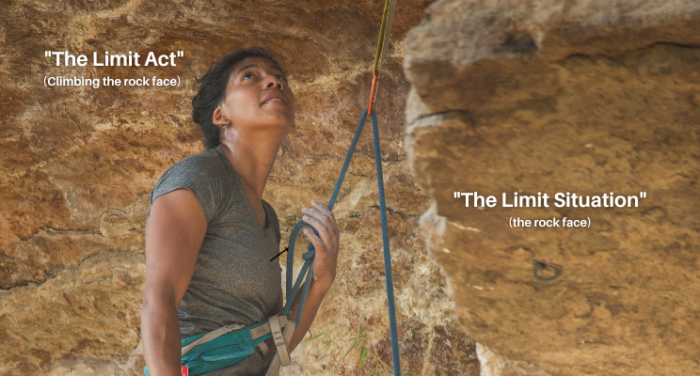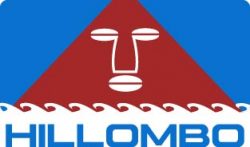Experimenting with Experiments: Using Freire’s Dialectic To Create Projects That “Elevate Equity”
Experimenting with Experiments: Using Freire’s Dialectic To Create Projects That “Elevate Equity”
By: Justin Laing | December 9, 2022 | Antiracism, Program Summary, Racial Capitalism, Research
Really excited to see Gathering Ground (GG) publishing this “compendium of learning and action” about Elevating Equity (EE)! I was privileged to serve as their partner on EE from July 2021 to July 2022 and a big shout out to the GG team of Elizabeth Murphy, Kacy O’Brien, Jeanette Mitchell, and Alyssa Calderone! ❤. Thank you to Robert Wood Johnson Foundation for funding the development and launch of the program. Please go to the report and check it out! The sections I wrote or had a heavy role in are pp 15-36. In this post, I will offer a snapshot of the overall project, but the report itself is a resource on strategies to study and interrupt the oppression caused by the 501-c3 category (nonprofits) and a lot of primary data on what people are seeing and experiencing in this netherworld between the public and private sphere of racially gendered capitalism. I also think the data hints that not only will the revolution not be funded, but that the counter-revolution is being funded in the sheer number of road-blocks, language policing and “slow-walking” (when folks take you through a lot of paces with the hopes you’ll either quit or you’ll lose so much momentum your constituency quits). So, please check out the report itself for a fuller picture.
Hillombo was engaged to lead core elements of the design, facilitation, and teaching for this project that involved nearly 100 really thoughtful people working in or with 501-c3 organizations with a dozen folks representing philanthropic organizations. The goals were two-fold: 1) to learn with this EE community of participants how to identify, name and analyze oppression created by the nonprofit and philanthropic sector, and 2) to guide and encourage the community to create experiments disrupting the oppression created by the nonprofit system.
This project would not have been possible without great feedback from an advisory committee named in the report, 20 inspiring facilitators and documentarians who supported small group conversations in each of the 4 bi-weekly workshops that were the framework of EE, and the mental and emotional labor required of the participants in order to take part in the program. In alignment with the stories shared at the outset by participants, this labor appeared higher for BIPOC people The workshops were centered on participants learning and then applying elements of Paulo Freire’s dialectic from Pedagogy of the Oppressed, about which I’ll say more below, to name and analyze the oppression and then build their own oppression-disrupting experiments.
To develop the experiments, a strategy I learned from Adaptive Leadership, but is an approach suggested by all manner of revolutionary and radical organizers, the project employed the phenomenological idea that looking at someone’s experience through their description of it, rather than telling you how it made them feel or why it was significant, is an incredible resource by which to understand “phenomena”. In this case, the phenomenon was “nonprofit oppression”. We applied this framework in the enrollment phase of the project when participants were asked to share a story of oppression that they either witnessed or experienced. These stories were then anonymized by Kacy, and participants analyzed them in small groups throughout the four three-hour sessions. During this time, they did their best to identify themes of oppression which then became what Freire calls the “thematic universe”.
The next step was to identify the crux of the oppression, in other words, what is underlying the themes and “forcing” them into being. Freire, in his dialectic, or his “dialogic method,” borrows from psychiatrist Karl Jaspers, and calls this crux “the limit situation.” The limit-condition stands between us and a more liberated existence (for a rough analogy, imagine a rock face between where you are now and where you want to be). On the other side of that “limit situation” is the world we want to experience, the opposite of the place we’re in now (the other side of that rock face). This opposite place, this place beyond the rock face, is what Freire, continuing to build on Jaspers’ theory, calls “the untested feasibility.” The question of what we have to do to reach this untested feasibility, to get to this Right Side Up, is the “limit act,” the act to surpass the limit, the oppression we are facing now. The creation of this “limit act” was the invitation to folks to create what Adaptive Leadership would call an experiment and what Freire would call an “Educational Project,” i.e. the merging of theory and action or “praxis” as a mode of learning.
The report has great sections from the GG team explaining how they conceptualized, initiated and sustained the project and from Dr. Kazimierczuk providing a data analysis regarding what participants offered about oppression and nonprofits. I wrote the methodology sharing more detail on the conceptual frameworks underpinning the approach, details of implementation, and reflections on the experience about what worked as intended and what did not. I also worked with Kacy on her idea to develop a visual to explain how I integrated ideas of Freire and Adaptive Leadership, and that visual follows the methodology section. This is followed by themes of oppression of the 501-c3 system that were offered by participants and a sample “thematic universe”, “limit situation,” “untested feasibility,” and “limit-act” that I developed by aggregating the participants’ stories in order to provide an example of how to apply the framework.

The project allowed me to try and link Freire with other frameworks that help address that “Pedagogy of the Oppressed” does not name racism or gender and says little about capitalism, all of which, according to participants, informs the nonprofit system. Now, maybe that is because of the oppressive conditions in which Freire wrote “Pedagogy”, as he was in exile, or because he was wanting to universalize his model, or because he was a Euro-Brazilian man of an educated background, I am not sure. However, these reasons only heighten the contradiction that “Pedagogy” references almost no Black or Indigenous people, people or frameworks throughout its four chapters. A fact that deserves reflection for a book published in the 1960s, an era of Black and Indigenous liberation movements worldwide.
I attempted to address this problem by offering that the essential limit condition was “racially gendered capitalism” and some minimum steps that would be needed to engage this limit condition. But, one of my reflections was that more time is needed for participants (myself included) to confront the extent to which we are “immersed.” “Immersion” is the word Freire uses to explain the extent to which we have accepted the core precepts of the dominant ideology, which prevents us from imagining and trying anything other than the small tweaks that extend the life of the system. This failure to see is in contrast to a looking that finds a deeply oppressive and violent conflict initiated by a European capital class which uses the nonprofit system for its own ends, but can be challenged. We made references to the work of Cedric Robinson (Black Marxism: The Making of the Black Radical Tradition) and Oyeronke Oyewumi (The Invention of Women: Making an African Sense of Western Gendered Discourse) to introduce more radical frames of analysis, though the time allotted did not allow participants to fully engage with those ideas. To enhance our EE community’s learning, we created a Thematic Glossary (pp 86 – 93) and additional workshop support materials (pp 94 – 104)
The Elevating Equity Compendium of Learning & Action also features a great example from Kacy on how she developed her own experiment and Dr Kazimierczuk’s data analysis reviewing what participants offered throughout the project is wonderful. A last shout out to Jeanette who handles communications and community engagement, and to Elizabeth, GG’s Founding Director, who provided amazing, thoughtful, caring leadership throughout the project.
Very happy to say that with continued support from Robert Wood Johnson, GG has been supported to continue this project into a second phase and asked me to return to work with them. I am both grateful and really excited to be able to work with GG and the larger collective to figure out what comes next.
Thank you to Etana Laing, Elizabeth Murphy, Kacy O’Brien, and Ebony Ross for their editing work on this post.
